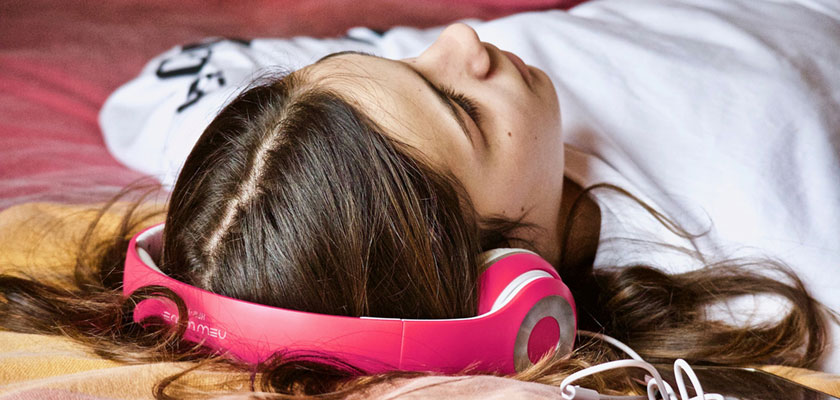
No matter who you are, sleep is an essential and natural part of everyday life. When we get enough of it, we feel refreshed, productive and alert. However, getting enough sleep is also important for our physical - and mental - health.
What Affects Our Sleep?
While getting enough sleep is important for our mental health, unfortunately, our mental health can also be a barrier in the pursuit of sleep itself. It’s such a vicious cycle! According to the folks at Harvard, stressed, anxious or depressed people find it harder to fall asleep. And, when they do, sleep tends to include more REM sleep (the bad kind) and less deep sleep. Our natural instinct is to respond to stress and danger by staying alert, making restful sleep really difficult to achieve.
Things we consume also make a massive difference. Caffeine, alcohol, nicotine and other substances affect us at the best of times, but at night they’re a nightmare - literally! When it comes to mental health, these substances can often exacerbate existing conditions, and so it might be worth considering generally cutting down any substances known to affect mood.
Our bodies are also incredibly thrown off by lights at the “wrong” time of day. In the past, humans didn’t have access to light after sundown, so we’ve upset things a little thanks to electricity, and our (obsession with) screens!
Why Is Sleep So Important For Mental Health?
If you’re already struggling with your mental health, sheer exhaustion is not going to help. You might think you do nothing while you sleep, but your body does so much behind the scenes. It’s when you replenish and recover, because deep sleep actually helps to detox and flush out toxins from the brain.
When deprived of sleep, your performance in all aspects of life suffers. You might find yourself unable to focus on work, education or your social life. In addition, your memory may be lacking, and driving fatigued could even have the same effects as driving drunk, so you might cause an accident.
The last thing you want to happen is to hurt yourself or others, lose your job, to be asked to leave your course, or go through relationship breakdown. Factors like this would only make things worse.
Sleep Quality Matters
Sleep quality can suffer when you take a long time to fall asleep or when you wake up during the night. It’s frustrating, because you often feel it can’t be helped, but factors like bad dreams, snoring, restlessness, noises and pain are major culprits. Looking to address your mental health issues by ensuring that you have a mental health plan from your GP is the first step you can take in trying to achieve better quality sleep.
It’s important not to oversleep, too. This is very common in depressed individuals, but it is a symptom, not a solution, and won’t be of a good quality.
How Can You Improve Your Sleep?
There are a number of ways that you can try and get more sleep.
- Try to get into a routine, as this can do wonders for your body’s rhythm.
- Avoid blue lights at least 30 minutes before bed. The light from screens tricks your body, and causes fitful sleep.
- If you do have to be around devices at night, get special glasses or download an app to filter your screen for sleep health.
- Lay off alcohol, caffeine and cigarettes just before bed. Instead, try drinking warm milk or herbal tea.
- Practice meditation - it’s amazing how much inner calm it can bring. Apps such as Smiling Mind can help with this.
- Try not to nap during the day. This is the last thing you want to hear when lagging, but staying up for the duration is better in the long run.
- Take exercise outdoors in the mornings. This resets your body clock.
- Try listening to a sleep playlist to help unwind.
- Make your environment comfortable. Make sure the temperature is right, and ensure that light and noise disruption is kept to a minimum. Get an eye mask and ear plugs.
- Feeling frustrated? Take a break from trying. Stretch, read or walk - just remember, don’t look at screens!
What Other Help Is Available?
If you’ve made efforts to improve your sleep but it’s still not happening, it’s best to get in touch with your GP, a counsellor, a psychologist or a sleep specialist. If you’re already on a mental health plan, you can discuss the ways your health issues are affecting your sleep. If not, they will take these symptoms into account when finding the right diagnosis.








